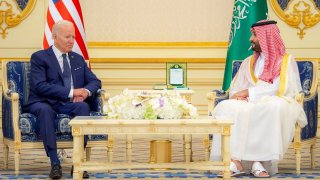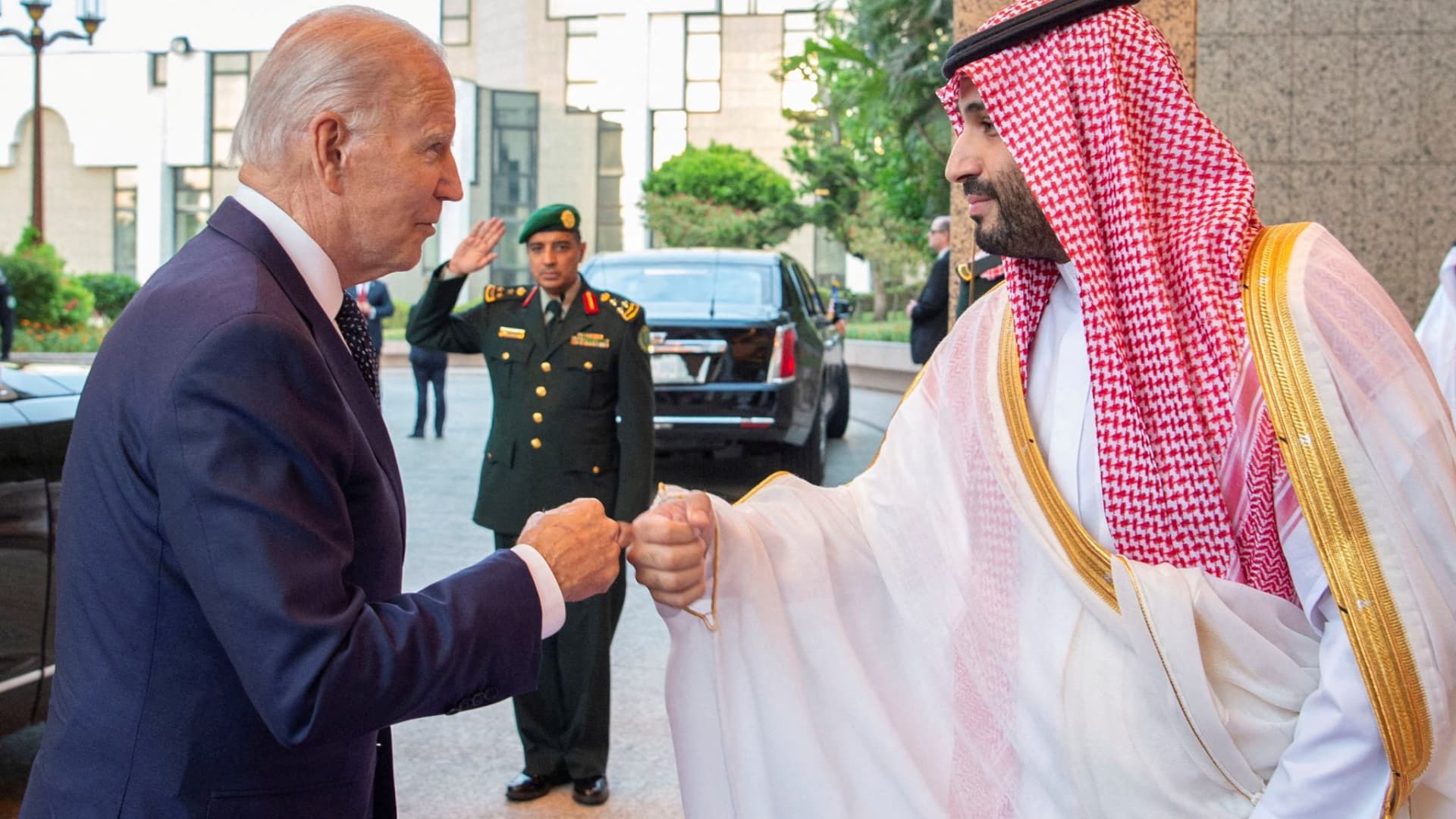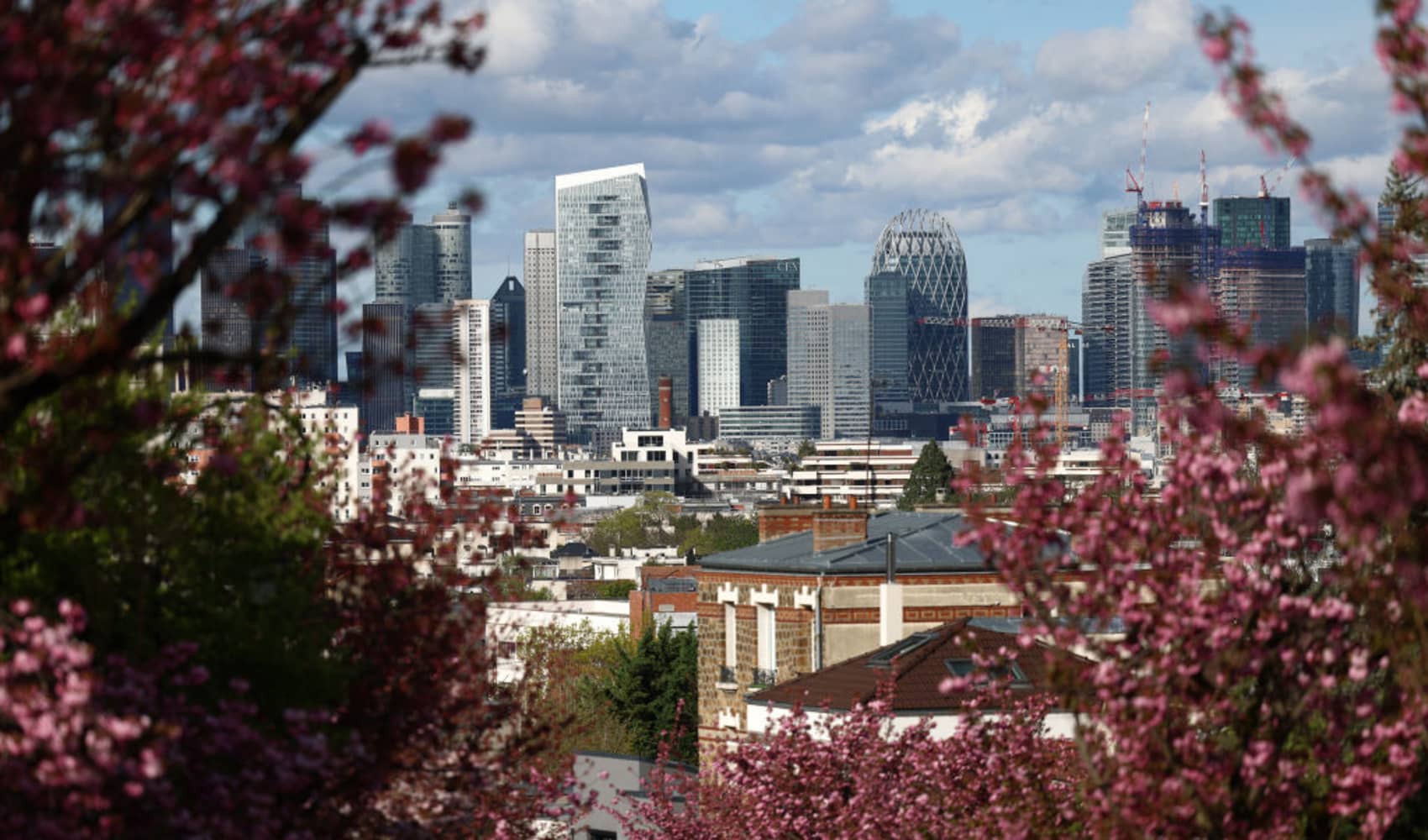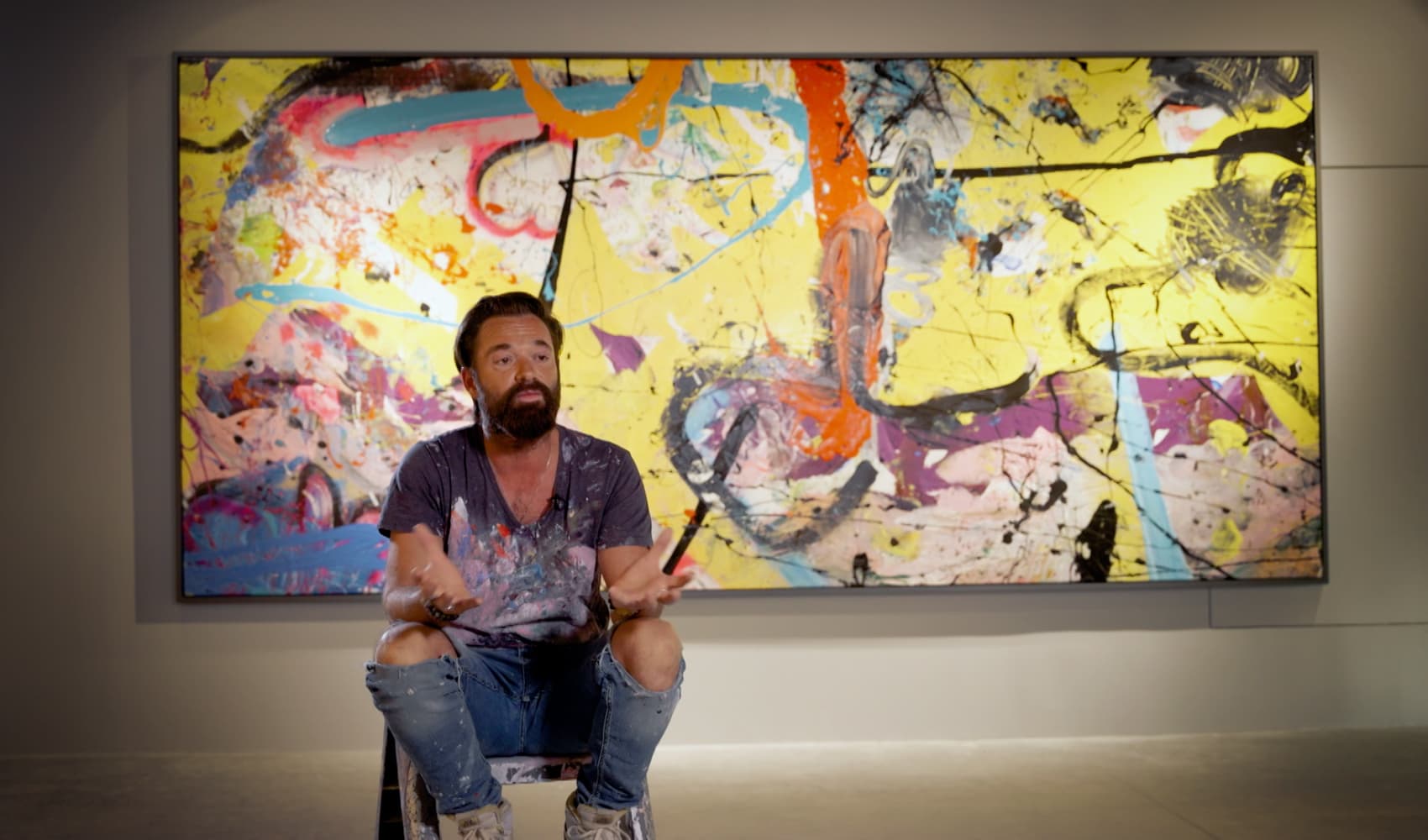
- Biden's address from Saudi Arabia, largely clouded by concerns over the kingdom's human rights abuses, came hours after the president fist-bumped Crown Prince Mohammed bin Salman.
- Biden aimed to tout progress on policy, but the murder of journalist Jamal Khashoggi overshadowed those topics.
- The president said that he raised the issue of human rights and the murder of Khashoggi at the top of his meeting with the crown prince.
- "For an American president to be silent on the issue of human rights is inconsistent with who we are and who I am," Biden told reporters in Jeddah.
WASHINGTON — President Joe Biden aimed to tout policy progress Friday after several highly criticized meetings with Saudi Arabia's royalty, but the kingdom's human rights abuses overshadowed all other topics.
Biden said his team accomplished "significant business" in Jeddah following months of what he described as quiet diplomacy. Among the topics of progress, Saudi Arabia and Israel — which Biden also visited this week — did take tangible steps toward normalizing relations, according to the president.
Get San Diego local news, weather forecasts, sports and lifestyle stories to your inbox. Sign up for NBC San Diego newsletters.
Visiting oil-rich Saudi Arabia as high gas prices contribute to low approval ratings at home, Biden also said he discussed oil supply during the meetings. He also pointed to 5G, climate policy and countering China's influence in the region as topics of discussion.
But Biden's address from Saudi Arabia came hours after the president fist-bumped Crown Prince Mohammed bin Salman, who likely ordered the 2018 murder of journalist Jamal Khashoggi. His decision to engage with the crown prince cast a shadow over the policy progress Biden aimed to showcase.
U.S. intelligence concluded that the crown prince, known as MBS, ordered Khashoggi's murder. He has previously denied having a role in the dismemberment of the journalist.
Money Report
Biden said that he raised human rights and the murder of Khashoggi at the start of his meeting with Crown Prince Mohammed.
"For an American president to be silent on the issue of human rights is inconsistent with who we are and who I am," Biden told reporters in Jeddah. The president added that the crown prince told him that he did not have anything to do with the disappearance and murder of Khashoggi.
Biden added that he did not regret saying in 2019 as a presidential candidate that he wanted to make Saudi Arabia a "pariah" after Khashoggi's murder.
"What happened to Khashoggi was outrageous," Biden said.

Biden last week published an op-ed in The Washington Post — where Khashoggi worked as a columnist — justifying his visit to Saudi Arabia.
"From the start, my aim was to reorient — but not rupture — relations with a country that's been a strategic partner for 80 years," Biden wrote in that article, which mentions the slain journalist by name once.
"I know that there are many who disagree with my decision to travel to Saudi Arabia," the president wrote. "My views on human rights are clear and long-standing, and fundamental freedoms are always on the agenda when I travel abroad, as they will be during this trip, just as they will be in Israel and the West Bank."
In a statement Friday, Washington Post publisher Fred Ryan said Biden's fist bump "projected a level of intimacy and comfort that delivers to MBS the unwarranted redemption he has been desperately seeking."
Khashoggi's fiancee Hatice Cengiz retweeted a photo of Biden fist-bumping the prince, with a message from Khashoggi's Twitter account: "Hey @POTUS. Is this the accountability you promised for my murder. This blood of MBS's next victim is on your hands."
When asked to respond to Khashoggi's fiancee's tweet, Biden said that he was sorry she felt that way.
"I'm sorry she feels that way. I was straightforward back then. I was straightforward today," Biden said.
Saudi Arabia's oil-rich monarchy is a major strategic partner for the U.S. and the top buyer of U.S.-made arms. That role has safeguarded the kingdom from retaliatory sanctions over Khashoggi's death and the Saudi-led war in Yemen.






